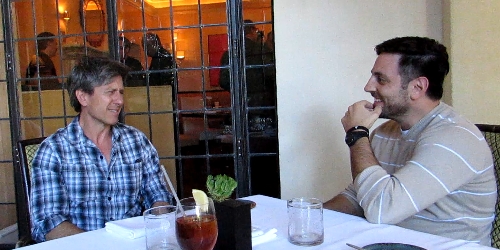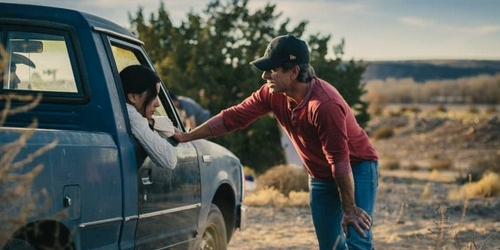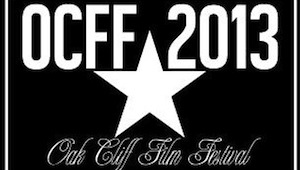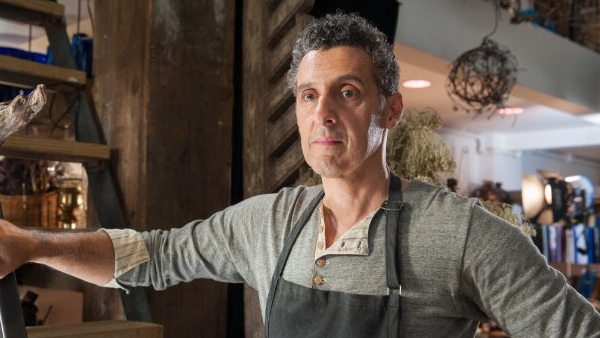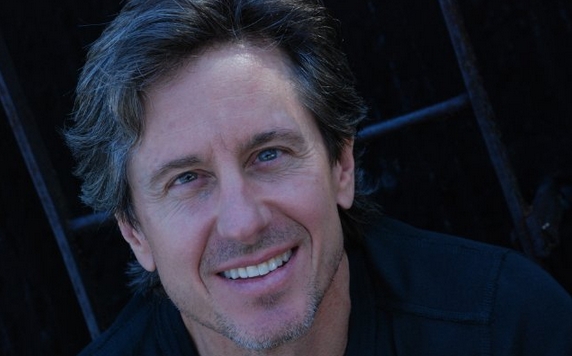 Michael Berry is an actor and director of stage and film and most recently completed production on the feature film Frontera. Directed and co-written by Berry, the film stars Ed Harris, Michael Pena, Eva Longoria and Amy Madigan. Previous to that he directed and co-produced two award winning short films, Mira and Day of the Grackle. As an actor Berry appeared as an original cast member of the Tony Award, Pulitzer Prize winning “Next To Normal”. Other Broadway and national tour appearances include Les Miserables, Sunset Boulevard, Tommy and Mamma Mia.
Michael Berry is an actor and director of stage and film and most recently completed production on the feature film Frontera. Directed and co-written by Berry, the film stars Ed Harris, Michael Pena, Eva Longoria and Amy Madigan. Previous to that he directed and co-produced two award winning short films, Mira and Day of the Grackle. As an actor Berry appeared as an original cast member of the Tony Award, Pulitzer Prize winning “Next To Normal”. Other Broadway and national tour appearances include Les Miserables, Sunset Boulevard, Tommy and Mamma Mia.
Off Broadway Mr. Berry appeared as Starbuck in a critically acclaimed production of Moby Dick, and was nominated for a Drama Desk award for Best featured actor in a Play. Berry was granted a scholarship to attend the United States International University, School Of Performing and Visual Arts, and in New York studied with Austin Pendleton, Wynn Handman and the legendary Uta Hagen.
Frontera is about a former Arizona Sheriff’s wife is killed while riding on their Ranch property. It would appear a Mexican man crossing in to the US illegally is at fault but as the former Sheriff and current Sheriff search for answers, their lives are changed forever. The film handles multiple characters, plot lines, and the intersection of both with a competency you’d find in any number of Christopher Nolan films. Enjoy our session with writer/director Michael Berry.
GST: Michael, thanks so much for coming to town and for screening Frontera for us. I have to ask, where did this come from? This is such a well made film so how did you come to make such an amazingly complex and layered narrative after just two short films?
MB: The story itself started with my best friend in the world Louis Moulinet. He grew up in the border towns of Arizona and he wanted to write a story about to Mexican twins
who came back and forth across the border to go to school in America. He started doing research and gathering information and he never really finished that particular story but we started our own collaboration. Being that we’re both from Arizona we wanted to tell a border story set in that area on the Arizona border and based on the men that I’ve known and worked with who have come across.
*laughs* That’s the longest shortest way to say it *laughs* but really, I guess the best way to put it is that it’s based on family members and friends. Nearly every character in the film is either loosely or closely based on people that we can draw from like, for me, the character Roy. It’s pretty much my father, Livy, his wife ,was based on my mother and the same for Louis’ characters. There is a lot of our personalities and a lot of our lives up on screen in Frontera and this honestly may be possibly the most personal creative project I’ve worked on.
GST: I think the most interesting about the film is it you have 3 very important characters, or better, entire portions of the plot – there’s Ed Harris’ character, there’s Michael Pena’s character, and there’s the high school students. Now they’re not all the characters but they’re the main driving force of the film and are involved in what happens to Livy, especially how they are all dealing with incomplete information and yet are all part of the same event.
You complicate that with secrets, language barriers and assumptions and it just makes for a compelling story, or really just part of this really layered story. Anyway I’m rambling but it’s a really engaging film.
MB: Yeah there was a lot of math that went into it making all these characters interact.
GST: All those pieces came together very well and I’m kind of reminded of Lawrence Kasdan’s Grand Canyon and how similarly these people from all walks of life come together and move forward in light of tragedy and grief.
MB: That’s sort of the way I see story. Because it’s interesting to me to see how one person’s life can affect another person’s life, and that can affect another person’s life and so on and so on. So that’s the fun part of writing the story
– figuring out characters. That, for me, beyond the whole political aspect of the film, is something I really wanted to delve into and make the characters these people from different regions who do exactly as you say come together in light of it all.
You know, you the read newspapers there’s atrocities happening all over the world. Sometimes these events and tragedies feel so far away and we have no compassion or understanding because we’re so removed from it. But I’ve known people like the people that and people in Frontera. and I know their humanity. We are the sum of all our parts, everyone has virtue and fault I think that’s what I wanted to highlight, the fact that there are villains and heroes on both sides of ourselves and our countries.
Now one thing I wanted to do was never leave the film one way or the other and go “oh poor Mexicans” or “oh poor Americans”. Injustice doesn’t have geographical boundaries. Injustice is everywhere which makes is universal so the real point is we need to figure out what to do about it. Now I don’t have the answer and I don’t profess to it, and I don’t I think the film professes to it either, but I think we have to figure something out.
GST: Well I think that’s what makes the ending very strong and compelling. These characters come to a loss in their lives but they meet on similar terms and find a way to put away their differences, their and aggression and their heartache. It’s very emotional.
MB: Oh good! I’m glad to hear you say that.
GST: One thing that helps with that was the score. At GoSeeTalk we’re very big into film scores, and I’m not going to say that the score manipulated me, but it definitely did its job. *laughs* It really was great work by Kenneth Lampl and Darren Tate.
MB: They did a good job, didn’t they? *laughs*
GST: Yeah, I wanna know, can I get that soundtrack??
MB: You know, I’m so happy that you asked for that because I think that they would love to do that. There hasn’t been any talk about that yet, I keep telling them and saying if we ever screen the film and someone like yourself asks about the score that’s more and more reason to put a soundtrack out there.
They really should because they worked really really hard on this. We had a funny situation making this actually. Ken and I worked in one room while Darren, who is a London-based composer, would call us from the UK on Skype. Ken and I would try to work out something going back and forth, then we’d turn to Darren and you hear him in his British accent going “oh no I don’t think that works at all do you?” *laughs*
Then later, when we recorded the score, we used the Macedonian Orchestra, a 65 piece orchestra, and we did it all through Skype. And what Ken and Darren did was just brilliant with the way they would make changes on the spot with the orchestrator right over the computer. Man, that was cool! We put a lot of score in and then I pulled a lot of score out, but that’s what you always do. Ultimately the sound and the variation on a the theme that I asked for I feel like they delivered and they really just blew me away with the final product.
GST: Did it take a while to get two different ideas and musical visions on the same page together?
MB: Well here’s the thing, I co-wrote this movie with my friend Louis, so I like the idea of having more than one creative mind offering up ideas, and developing a project further. I love the collaboration, I love to have that constant exchange of ideas. I bounced everything off of Louis when we were writing.
When I got done with a scene I’d call him up and he was the first person I wanted to talk to. I’d always be asking, “what do you think of this?” And so that’s the way Ken and Darren would work – they really balanced each other out. Now it takes a while to find that compatibility in a person that you want to be able to do that with, but I think that in their case especially they are more experienced at that kind of thing than I am. They worked together on a number of different things so they both have their strengths and they were able to pull up the others’ weaknesses and shortcomings, if there are any, and vice versa.
GST: For your first feature you have great composing horsepower and you have great writing, but you also have some amazing acting caliber. How did you get the likes of Ed Harris and and especially Eva Longoria? I mean, talk about a roll but you don’t see her playing very often.
MB: She came after this role. I tell you that. And I did that thing that you’re not supposed to do, and I know this come from an acting background, which is that
you never want people to pigeonhole you or stereotype you. You can get in that rut that “this actor does this” and I had done that to Eva a little bit at first. I heard she was interested and I thought “Eva Longoria? She wants to do this??”
It didn’t sound like a good idea to me. But she talked to me on the phone and she was clearly passionate about the part. She really wanted to be part of this and we just felt like she would and could do it. I think that she exceeded everyone’s expectations. I’m not taking any responsibility for her, the role I wrote but the performance was all her. I’m just so proud of what she did and I hope that people get to see something that not many people have seen her do. I think her work is subtle and simple and I’m very proud of her work in this.
Now as far as Ed Harris. *laughs* Wow…
GST: …talk about shooting for the moon right?
MB: Well I’ll just tell you the truth on that. I wrote this with Ed Harris in mind because, over the years that I had seen Ed Harris on stage and in films, I had been so fond of him as an actor. You know, every actor sort of has their guy, which is to say that kind
of actor that you see and it makes you go “yep, that’s who I wanna be!” and for me that was Ed Harris. He has a way and a feel about him that reminds me so much of my father. The character Roy is loosely to closely based on my father and being that Ed is who he is he’s a very dynamic and vital man. He is the same today as how you saw in films 20 and 30 years ago. That’s what I needed for the character. He did all the horseback riding, he did all the motorcycle riding, he does everything.
He’s an athlete, and I needed that for Roy. I didn’t want it to be the “broken down sheriff”, I needed it to be a man in a job who is still vital. Also Ed always tells the truth with his acting and you always just feel like he is the person in the story. You don’t see his technique and that’s something that all actors, I think, aspire to be.
GST: I’m glad you brought that up. That was one thing that surprised me, the scene where Roy takes off on his horse after the Ford Bronco.
MB: Yeah, he can ride and that is him doing it! *laughs* You know, at one point one of the guys in a production meeting came up to me and said “we should probably get a body double for Ed since he’s riding the horse, and a motorcycle”. And I said no. I’d met Ed by that point and I said, “No, Ed said he would do it.”
So he said “well, let’s just make sure” and I went with that. Well, a little later Ed called me over and goes *Michael doing his best Ed Harris voice* “Michael, come over here. Did I, uh, did I hear something about you got a double to do some riding for me?” and I, with real wide eyes, went “No! That wasn’t my idea!! No no no…You! You’re going to do all that right?” and Ed just nods at me in approval, with his slightly squinted eyes, and then walks off. *laughs* So yeah, he can ride. *laughs*
GST: You said before that you have an acting background, so can you give us a little bit of info about yourself and what you did before writing Frontera?
MB: As I mentioned, I grew up in Arizona. My mother was an artist, and part of my interest in this whole subject matter is because my mother’s work. Her drawings were based on the area, the region, Mexican people and Mexican culture. Her love of that is what brought me to this and I learned a lot about the arts from my mother. My father was a hunter, fishermen, outdoorsman, and an athlete. He and I got on pretty well and we did most of our bonding in these outdoor activities so it was in my formative years that I found this balance between a rugged outdoorsman lifestyle and art.
So, when I got into acting it was a struggle for me because no one in my family had done anything like that. I auditioned for a couple things when I lived in Arizona and it seemed like something that I really want to do because I wanted to express myself in different ways. So I continued on with that and I eventually auditioned for and got into a performing arts college in San Diego California. It was actually the same school that Jamie Foxx went to, he and I knew each other back then, and from there my first job when I got out to Los Angeles was at the Universal Studios Western Stock Show. I learned how to do all sorts of interesting things there.
They were looking for actors who could do stunts, and I’d always been athletic, and so they trained us how to do all kinds of falls, off horses and buildings, etc.. We got to play cowboy all day and *laughs* we got really good insurance *laughs* so that’s what I did, and the reason I bring that up is because of the guys that I met during that time.
One thing they did for me was they never let me take myself too seriously. You know, I was in college, and I was studying Shakespeare, and all these different “actory” things, and because I was young, I just took everything seriously. And they would just bust it out of me. I wasn’t allowed to take myself seriously when I was with them, and that helped me a lot.
Then after that, at some point, I started doing some theater work. I had roles in Broadway and national tours of productions like Les Miserables. It really wasn’t my style, but I met some great people and actually one of them was the guy who shot my first short film. I don’t want to get too far into it, but now here we are with Frontera, and looking back, you can see how a lot of my younger years have been leading up to this.
GST: Frontera, at points in the film, becomes very dark. In a way it’s in line with what we’ve seen on TV for the past ten, maybe fifteen years – shows like The Shield, Breaking Bad, and many other cop and courtroom dramas.
But in the film, we became familiar with Michael Pena’s crossing the border, but Eva Longoria’s character’s border crossing story exists a bit outside of that triangle we mentioned earlier. She was in that group of people looking for a new life but are taken advantage of by their so called “guide”. What made you want to take Frontera in a dark direction like this for a portion of the film’s narrative?
MB: With the human traffickers, who take people across the border like we depict in the film, I was fairly generous. They do far worse than that. They violate many, many of the women, so what we see happening really does happen. In fact, some of the guys who do that actually hang the underwear from a tree afterwards. They have a thing called the “underwear tree” where they hang these things after they do that to women, kind of a trophy if you can imagine.
There are atrocities that are being carried out on the Mexican people who are coming across the border by other Mexican people – the human traffickers. These hopeful people put their trust in these guides, they have gathered money from whatever and wherever they can, to try to get across the border and then they are treated like that. So its and unfortunately a very common occurrence for people who are looking for a better life.
GST: Unfortunate events happen to nearly every character in the film, but the story tries to show how they grow from it. It reminds me, in a way, Lawrence Kasdan’s Grand Canyon.
MB: That’s the thing, it’s about humanity. There’s toughness and resiliency, especially of the people I’ve known in that region. You have to think about the people who are trying to get across the border. Traveling through the desert like that, the people who make it are not ordinary people, they are strong focused people going after something they really need and so there’s that fortitude in people who must get across for their families to survive.
Now, having said that there’s people who are taking advantage of that, and there are people who are being affected by it on the American side as well. That’s what I wanted to show, the humanity that is being affected by this situation and the problem that we have happening out there and I wanted to show in some way the nobility of the hero and the treachery of the villains…on both sides.
GST: Without sounding superficial, and down playing the importance of the message and your intent, this is the coolest movie I’ve seen this year and excited for the audiences to see it on Sunday at the festival.
MB: Well thank you, I hope people feel the same way!
GST: So to end this, going back to what you said about not taking things too seriously, do we have something to look forward to from Michael Berry that is a little more light-hearted in the future?
MB: Yes, you can! I have a very strange project right now. It’s about 6 people stuck on a subway car for some hours. They are complete strangers, and they all affect each others’ lives in significant ways. They are different races, come from different backgrounds and speak different languages, and being stuck on the subway together they learn that they are much more alike than they probably would ever like to admit. And yes we do have a Mexican man e who is an illegal immigrant, because I can’t do a movie without one *laughs* but that’s what’s next. It’s called Stuck. *laughs*
GST: *laughs* The title makes perfect sense.
MB: *laughs* Now I hesitate to say this, because I don’t think of it this way but it is a film with music, it’s a musical, but I hope that the songs and the music will come out of it very organically.
GST: Well I love the way you put all the pieces together in Frontera so I can’t wait to see what you do with a bigger cast.
MB: Thanks *laughs* I hope I can pull this one off!
Thanks to Michael for his time and for being part of the 44th Annual USA Film Festival in Dallas.

